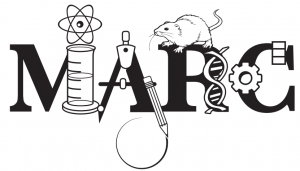The goal of the MARC program is to develop a strong pool of undergraduates who complete their baccalaureate degree, and transition into and complete biomedical, research-focused higher degree programs (e.g., Ph.D. or M.D./Ph.D.) in a STEM field. The long-term goal is to develop a broad pool of well-trained biomedical scientists, who have the following technical, operational, and professional skills:
- A broad understanding across biomedical disciplines and the skills to independently acquire the knowledge needed to advance their chosen fields
- The ability to think critically and independently, and to identify important biomedical research questions and approaches that push forward the boundaries of their areas of study
- A strong foundation in scientific reasoning, rigorous research design, experimental methods, quantitative and computational approaches, and data analysis and interpretation
- A commitment to approaching and conducting biomedical research responsibly, ethically, and with integrity
- Experience initiating, conducting, interpreting, and presenting rigorous and reproducible biomedical research with increasing self-direction
- The ability to work effectively in teams with colleagues from a range of backgrounds and commit to recruitment in other mechanisms.
- The skills to teach and communicate scientific research methodologies and findings to a wide variety of audiences (e.g., discipline-specific, across disciplines, and the public)
- The knowledge, professional skills, and experiences required to identify and transition into careers in the biomedical research workforce (i.e., the breadth of careers that sustain biomedical research in areas that are relevant to the NIH mission)

